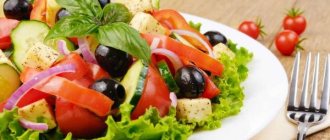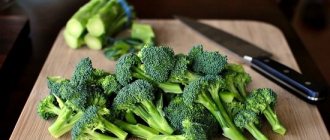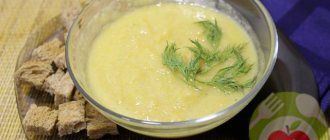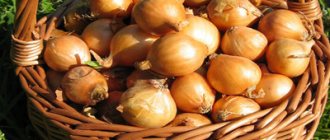Indications for use
Gastritis is an inflammatory process of the gastric mucosa. This is the general name for various pathological conditions, which are characterized by increased or decreased acidity, the presence of erosions, superficial damage to the mucous membrane or deeper, local or extensive, suddenly appearing or constantly occurring. Any of these conditions requires a specific diet and the place of dairy products in it is different. Let's consider some of them and the indications regarding milk:
- milk for gastritis with high acidity - the pathology is accompanied by intense synthesis of hydrochloric acid, which leads to inflammatory processes of the mucous membrane. In this case, milk is a means of neutralizing acidity;
- milk for erosive gastritis - the disease is manifested by the formation of defects on the surface of the stomach lining and is a more complex form that can lead to serious complications - gastric bleeding. The reason for this is the aggressive environment, including disruption of secretory processes. The problem requires long-term treatment and strict adherence to a diet. Milk must be present in the patient’s diet;
- milk for atrophic gastritis - this type develops against the background of reduced production of hydrochloric acid, the glands that produce gastric secretions are replaced by connective tissue, and the peristalsis of the organ decreases. You need food that stimulates its production, and milk is not one of them;
- milk during exacerbation of gastritis - occurs due to poor nutrition, poisoning, injury. In the first few days of an exacerbation, milk is prohibited; if diarrhea improves and there is no diarrhea, small portions of fresh goat milk are allowed;
- milk in acute gastritis - occurs suddenly, manifested by pain on palpation in the epigastric region, nausea, vomiting, dizziness, weakness. This condition is caused by damage to the sinewy apparatus, sometimes in its deep layers, and requires the first two days of completely refusing to eat, followed by a strict diet in which there is no place for milk. When the condition has stabilized, you can start by adding it to tea and cooking porridge with it.
[4], [5], [6], [7], [8]
Benefit
For a sick stomach, it is important to take gentle food, which would simultaneously provide the nutrients necessary for life. It contains not only vitamins and microelements, but also easily digestible protein. In the case of gastritis with high acidity, the benefit of milk is that it envelops its walls with a thin film, thus creating a barrier to the acidic environment, prevents inflammation, relieves pain, protects against pathogens, and normalizes digestive processes. For this purpose, it is best to use whole homemade fat milk.
[9], [10]
How to drink milk with gastritis?
If there are no contraindications limiting the consumption of the drink, the question arises which milk is best to drink, how to drink it and in what form. The most affordable product for city dwellers is cow's milk, which is found in abundance on supermarket shelves from different manufacturers and with different fat contents. But fresh undiluted is best, if possible.
Goat's milk for gastritis
Goat milk is recognized as more nutritious and healthy, it is hypoallergenic, and its composition is close to breast milk. It contains a special enzyme, lysozyme, which destroys the bacterial cell wall, which is manifested by a wound-healing effect and the ability to have a detrimental effect on Helicobacter Pylori bacteria, which provoke the development of gastritis. In addition, it is low in lactose and high in albumin, making it easily digestible. Goat milk neutralizes hydrochloric acid well, so it is best to drink it on an empty stomach in the morning. Like cow's milk, it is indicated for gastritis within the framework of the features described above.
Porridge with milk for gastritis
The most dietary version of the product is porridge with milk for gastritis. It is this that should dominate the diet of a person suffering from inflammation of the digestive organs. Its consistency and viscosity is not capable of injuring the inflamed area, but, on the contrary, covers it with a protective film. Most cereals involved in cooking, with rare exceptions (pearl barley), meet these requirements:
- rice porridge with milk for gastritis - this cereal contains about 80% complex carbohydrates, 10% protein, contains vitamins PP, group B, magnesium, iodine, calcium, iron, phosphorus. In addition, rice porridge is an absorbent that absorbs and removes toxins, cleansing the body. You need to cook it in water, and add milk just before it is completely ready. The consistency of the dish should be viscous and not very thick. Ideal for the gastric mucosa is the addition of pumpkin. It should be eaten warm in small portions slowly;
- cereal with milk for gastritis - for many modern people, cereal has become a quick and nutritious breakfast for every day, corn flakes are especially popular. But gone are the days when they were 100% natural and had all the beneficial properties of the grain from which they were made. Now they are supplemented with flavors, trans fats, stabilizers and flavor enhancers, which takes them beyond the scope of a dietary product and is not recommended for gastritis. If the composition does not contain all of the listed harmful substances, then cereal with milk can be eaten;
- buckwheat with milk for gastritis - buckwheat is exactly the product that is present in all dietary tables designed for nutrition with diseases of the gastrointestinal tract. It does not cause bloating, diarrhea, heaviness in the stomach, or heartburn. It is very nutritious, thanks to the presence of protein, vitamins and microelements, and is well absorbed. Buckwheat with milk for gastritis is a good nutritional element that has a positive effect on the gastric mucosa and has an anti-inflammatory effect;
- oatmeal porridge with milk for gastritis - another well-known name is “oatmeal”. By itself, it is slippery when cooked, and this is what is needed for the damaged inner lining of the organ, because... envelops it, protecting it from the aggressive influence of secretion and other negative influences, absorbs and rids the body of harmful substances. Oat grain contains many useful components that are preserved even in their flattened form, so oatmeal porridge with milk is useful for everyone with any form of gastritis, with the exception of people with gluten intolerance, of which there is a large amount.
How to choose and store goat milk correctly
The healthy product is usually not found in supermarkets; you can find it in health food stores or markets. When choosing, the main attention should be paid to the manufacturer; it does not hurt to make sure that there are certificates and veterinary permits. These documents guarantee the safety of milk and confirm that it does not contain dangerous bacteria.
Important! The freshness of the product can be determined by its color and smell - good goat milk is always snow-white, and the aroma exudes pleasant and without sourness.
As for shelf life, the product should be kept in the refrigerator. A fresh drink retains its beneficial properties for only 5 days; boiled milk remains suitable for consumption for up to 10 days.
Reviews
People suffering from hyperocidal gastritis complain of heartburn, which greatly annoys them. According to reviews, a few sips of fresh full-fat milk help relieve it. In the remission stage, many milk lovers note the absence of any negative effects on the body, both itself and other dairy products.
Gastritis is an inflammatory process that occurs in the area of the gastric mucosa. The symptoms of this disease vary, so it is quite difficult to make such a diagnosis on your own. Only a qualified specialist can determine the form of the disease and recommend drug therapy. To speed up the healing process, it is imperative to adhere to a diet. How should you drink milk if you have gastritis, and is it even allowed to drink it if you have bacterial infection or inflammation of the gastric mucosa?
Effect on the gastrointestinal tract
We will talk about the beneficial and harmful properties of the product.
Beneficial features
Is it possible to drink milk if you have gastritis? Milk has a softening effect on the mucous membrane. For stomach pain, doctors recommend drinking 200 ml of the drink to get rid of cramps. Due to the low acidity of the drink, high acidity can be normalized. Also, for gastritis, it is very useful to regularly consume home-made fermented milk products. Milk with propolis at night will help you fall asleep quickly and relieve night pain.
Harmful properties
Casein, which is part of milk, is difficult to digest. Every year, the human body is less able to digest casein. With age, the proteinase enzyme is lost, which causes difficulty in digesting milk. For older people suffering from gastritis, milk will do more harm than good. That is why it is best to give up a glass of milk and eat, for example, a little cottage cheese with the addition of propolis.
Dairy products for gastritis - benefit or harm?
Stomach with gastritis
Milk contains easily digestible protein, which performs restorative functions, which is indispensable in case of damage to the gastric mucosa. With gastritis, the walls of the gastric tract are covered with small ulcers, as a result of which severe pain occurs after eating rough food. The inflammatory process contributes to a deterioration in overall health and gradually leads to bowel dysfunction. In the absence of qualified treatment, the pathological process quickly worsens and leads to the development of irreversible complications.
Note. Dairy products help improve well-being, having a beneficial effect on the body. That is why including them in the diet in this case is not only useful, but simply necessary.
Unique composition
Milk contains vitamins A, B and E, calcium, as well as easily digestible protein, which have the following properties:
- healing and restoration of the mucous membrane at the cellular level;
- normalization of digestive processes;
- protection from harmful microorganisms.
Despite the fact that in case of bacterial infection or inflammation in the area of the gastric mucosa, it is possible to consume such food, this must be done with special care. In this case, special recommendations and rules must be taken into account. It is advisable to first consult with a nutritionist or therapist.
Gastritis with high acidity
After activation of the processes of producing excessive amounts of gastric juice, symptoms such as severe heartburn, gagging and sour belching are observed. Therapeutic measures given the form of the disease are aimed at combating high acidity. It is recommended to limit products that contribute to the development of this process. In this case, it is necessary to prevent damage to the mucous membrane by gastric juice by eliminating foods that increase its production.
It is important! If you have gastritis with high acidity, you can drink non-skimmed milk. However, it is not recommended to use sour cream and kefir.
If there is increased secretion of gastric juice, you should not consume all fermented milk products without exception, and even fermented baked milk. This is due to the fact that they can aggravate the symptoms of the disease.
Goat's milk and high acidity
goat milk for gastritis
Experts recommend drinking goat's milk for gastritis with increased secretion of gastric juice, because it has the following properties: It has an exceptional composition, which includes lysozyme. This substance has healing and antibacterial properties, which allows not only to restore the mucous membrane, but also to protect it from the effects of bacteria such as Helicobacter Pylori. Its protein contains sufficient amounts of albumin, which contribute to the rapid breakdown of the product. That is why this product is quickly absorbed without causing digestive disorders. It contains a small amount of lactose, so you can drink it without restrictions. For a stomach with high acidity, it is useful to drink milk, increasing its amount over time. This principle of use allows you to neutralize the negative effects on the walls of the stomach. In this case, bloating, vomiting, heartburn, nausea and other unpleasant symptoms do not occur.
Features of using goat milk for different forms of gastritis
Goat's milk is a specific product; its composition differs in many ways from the ubiquitous cow's milk. Is it possible to drink goat's milk instead of cow's milk for gastritis? Of course, since its fats/proteins consist of molecules that are smaller in size (this is due to the peculiarities of the chemical formulas of the components of both products) compared to cow's.
This means that its digestibility in the digestive tract is much higher, and with weakened digestion as a result of gastritis, goat’s milk will be much healthier. The only point is that gastritis should be treated with this product taking into account the form of the disease and the patient’s condition.
Rules for consuming goat milk for gastritis:
- in mild forms of pathology, you are allowed to drink a glass in the morning and before going to bed;
- the minimum course of treatment with goat milk is 2 weeks, the maximum is not limited (unless allergic contraindications arise, which is very rare);
Goat's milk is a product whose specific composition differs in many ways from the ubiquitous cow's milk
- You should drink milk in small sips;
- if you have never used this product before, start with small portions - no more than half a glass;
- Goat milk should not be boiled - in this case it loses most of its beneficial properties.
Goat's milk for gastritis with high acidity
Goat milk for gastritis with high acidity can be consumed, but only fresh and non-fat, preferably heated to human body temperature. You need to drink it approximately 50 - 60 minutes before meals; a significant healing effect is achieved after two months of regular use (daily dose - 1 - 2 glasses on an empty stomach, with the addition of a small amount of honey).
Gastritis with low acidity
If there is insufficient amount of gastric juice, heaviness appears after eating, characteristic belching of rotten contents and bloating occurs. This symptomatology is associated with insufficient functioning of the stomach, which provokes disruption of the digestive processes. Gastritis with low acidity is characterized by insufficient stomach functionality, which requires qualified treatment and diet.
Note! If you have low acidity, drinking milk is unacceptable. You can drink it by adding small amounts to dietary porridge or tea.
Acceptable diet
Ryazhenka instead of milk
With low acidity, it is recommended to drink not milk, but fermented baked milk, low-fat kefir and low-fat yogurt. Fresh cottage cheese is also quite healthy. You can prepare a lot of delicious dishes from it: soufflé, pudding, casserole. With low acidity, it is important to ensure that the dishes served to the table look quite appetizing. This contributes to the production of the amount of gastric juice necessary for digesting food, and, accordingly, normalization of digestion. With low acidity, complications may develop, so dietary recommendations should not be neglected. If you really want to drink milk, then you can allow yourself 1/3 of a glass, but you should only choose the lowest percentage of fat content. It is advisable that it be goat's milk, as it is better absorbed and causes less harm with low acidity than cow's milk.
Atrophic gastritis
With atrophic gastritis, diet also plays an important role in treatment. This type of disease can occur with both increased and insufficient levels of gastric juice production. A pathological process occurs due to a decrease in the number of gastric glands or bacterial damage to the mucous membrane.
The atrophic form of the disease, if untimely and unqualifiedly treated, can develop into cancer, so in this case it is impossible to do without medical help. Dietary nutrition is also very important. As for whole milk products, it is not recommended to consume whole milk for the atrophic type of the disease. You can drink low-fat goat milk in small quantities every day. Kefir, fermented baked milk and yogurt can be included in the diet in small quantities. You should first consult with your doctor about diet, since in this case it is important to take into account the individual characteristics of the body and the nature of the disease.
The diet for gastritis is quite strict. It is expected that fried, salted, spicy, canned, pickled, smoked and other foods that irritate the walls of the stomach will be completely excluded from the menu. As for milk, in most cases its consumption is welcome. Moreover, during heartburn and epigastric pain, the patient’s first desire is to drink a glass of milk. It really eliminates pain and relieves the feeling of heaviness behind the sternum. In this article you will find out whether you can drink milk if you have gastritis.
Is it possible to drink milk if you have gastritis?
Goat milk cures cancer. Healing nutrition
For many centuries, wise healers used herbal decoctions, powders, tinctures from natural raw materials, and special nutrition to treat their patients. After all, in ancient times there were no pills or medicines, and the pharmaceutical industry did not exist. Treatment with goat's milk was one of the popular healing methods. In the old days, this tasty food product was considered a panacea for many diseases, a real elixir of youth and health.
Healers of ancient Rome used goat milk to treat the spleen. Ancient manuscripts indicate that goat milk boiled with sesame seeds helps against catarrh of the eyes. And dysentery can be cured by its mixture with ground barley and ground sea shells. Zemstvo doctors treated Russians' kidneys, tuberculosis, fever, duodenal and stomach ulcers, and nervous disorders with this miraculous food product.
Useful qualities of goat milk
Today, the amazing qualities of goat's milk are somewhat forgotten. Nutritionists have rightly noted that cow's milk is not as healthy for humans as goat's milk. Goat milk contains a lot of minerals, vitamins necessary for the body and a high percentage of nutritious fat. It has been said many times that the unique combination of elements in goat's milk restores and strengthens the strength of a person weakened by severe surgery, illness or malnutrition in a short time. The adult human body absorbs goat's milk almost one hundred percent, never causing allergies.
This natural drink is recommended for people with cardiovascular diseases and the elderly, because it contains potassium, which nourishes the heart muscle. Goat's milk contains much more cobalt than cow's milk. Cobalt is actively involved in hematopoiesis. Thanks to regular consumption of goat's milk, metabolism is significantly normalized - this is great for older people.
Gastritis and its types
Gastritis is an inflammation of the gastric mucosa, caused in 80% of cases by the Helicobacter bacterium. However, factors that provoke the activation of Helicobacter pylori are poor diet, stress, disruption of the daily routine, decreased immunity, etc. Gastritis causes disruption of the functionality of the stomach.
What is gastritis
The first symptoms of gastritis are:
- belching;
- heartburn;
- epigastric pain;
- stool disorders;
- nausea;
- increased gas formation.
It is not necessary for all of these symptoms to occur at the same time. It is enough to have two symptoms to contact a gastroenterologist for a diagnostic examination. What types of gastritis are most common?
Acute gastritis is a sudden inflammation of the gastric mucosa that occurs as a result of irritating factors:
- poisoning;
- eating disorders;
- chemicals in the stomach:
- acids, salts, alkalis;
- against the background of acute infectious diseases.
Chronic gastritis is a gradual irritation followed by restructuring of the gastric mucosa with a pathological change in its functions. This form can develop unnoticed without any symptoms.
The cause of the pathology may be:
- smoking and alcohol;
- eating disorders, overeating, unbalanced diets;
- bacterium Helicobacter pylari;
- long-term drug therapy;
- metabolic disease;
- prolonged and frequent stress;
- chronic infections;
- avitaminosis.
Chronic gastritis can have forms with high and low acidity.
According to WHO, about 80% of the world's population is infected with the bacterium Helicobacter
Goat's milk cured. Treatment of all diseases with goat milk
Goat is a real home pharmacy. Because of its miraculous properties, goat’s milk is popularly called “water of life.”
Doctors recommend goat milk for adults and children for gastrointestinal diseases, metabolic disorders, diseases of the respiratory tract, thyroid gland, cardiovascular system, tuberculosis, allergies, eczema, for the prevention of tumor diseases, and radiation exposure.
They say goat's milk prolongs life. It is no coincidence that there are so many long-livers in those regions where they consume a lot of goat milk. Looking ahead, let's say that it is bactericidal and kills harmful microflora. Goat milk contains biologically active substances that are not found in cow milk. And they keep milk fresh for a long time.
Doctors point to the unique medicinal properties of domestic goat milk. According to some researchers, goat milk, due to its high content of certain fatty acids, can be very useful for the treatment of a number of diseases, including gallstones, digestive disorders, cysts and fibroids, and childhood epilepsy. Promotes the resorption of excess cholesterol in the body.
In the mountain resorts of Switzerland, goat milk has long been used to treat patients with consumption, anemia and rickets. The Swiss added goat's milk to cow's milk when they delivered it to cheese factories. Perhaps this is why Swiss cheeses became famous for their taste. Such a popular product as yogurt also traces its history back to goat milk. It was from Bulgarian yogurt made from goat milk that Professor Mechnikov isolated the healing lactobacillin.
Freshly milked goat's milk has bactericidal properties. It contains biologically active substances that are not found in cow milk. Thanks to them, milk remains fresh for a long time. It does not turn sour within three days at room temperature, and can be stored in the refrigerator for more than a week. For the same reason, fresh milk is most useful, and then with each passing hour its valuable qualities are lost.
Goat milk contains a lot of potassium, the role of which is especially important in the activity of the cardiovascular system.
Compared to cow's milk, goat's milk contains six times more cobalt, which is part of vitamin B12. This vitamin is responsible for hematopoiesis and controls metabolic processes.
Goat's milk is similar in nature to human milk as it contains a lot of beta-casein. It raises rickety children to their feet faster than cow's milk, because it contains more sialic acid, which is part of the structure of the body's immunity barriers.
Composition of milk
Since ancient times, humans have used milk to feed babies and for additional nutrition for the sick. It contains many useful elements, it is a source of calcium and vitamins and is perfectly absorbed by the body. Cow's milk is the most popular, but milk from other mammals is often consumed. The composition of cow's milk includes proteins, fats, carbohydrates, organic acids, and minerals. It is these, and especially easily digestible proteins, that the damaged gastric mucosa needs, since proteins are the traditional building material of the whole body.
Milk contains a lot of protein
The milk contains almost the entire line of vitamins B, as well as E, D, H, PP, ascorbic acid, beta-carotene, choline, lactose and essential amino acids. The most valuable mineral component included in its composition is calcium in a rapidly digestible form.
This is interesting : The fat content of milk is on average 3.5%. It is regulated industrially: to reduce it, milk is skimmed, to increase it, the product is diluted with cream.
However, there are a number of people with lactose intolerance for whom milk is contraindicated. As a rule, they know about it. Milk is also contraindicated for people with a number of gastrointestinal diseases; in this case, the consumption of fermented milk products is recommended.
The use of goat milk in cosmetology
Goat milk is beneficial for the face, it softens the skin, promotes cell renewal, increases the elasticity of the epidermis and slows down aging.
- The product is used in different ways - regular washing with goat's milk is popular.
- To cleanse and moisturize the skin, you can pour a handful of oatmeal with warmed milk for 10 minutes, and then keep the mask on the skin for a quarter of an hour.
- The color and condition of the skin are improved by rubbing the face with frozen goat's milk in the morning; after just a couple of minutes, a refreshing effect is observed.
- The value of goat's milk for hair is also very high; if you regularly wash your hair with it or add the product to masks, your hair will become softer and stop splitting and falling out.
About 500 ml of fresh milk can be added to a hot bath, then the beneficial properties of the product will have a beneficial effect on the skin of the entire body.
What happens to milk in the stomach
If the stomach is functioning normally, fresh milk that enters it curdles under the influence of gastric secretions and hydrochloric acid entering it. Fat and milk protein precipitate in loose flakes. All food in the stomach is enveloped in these curdled flakes and is isolated from gastric secretions. Digestion of food slows down.
Gastritis with high acidity (hyperacid) – inflammation of the gastric mucosa against the background of increased acidity of gastric juice
Attention: With gastritis with increased secretion, acid curdles milk faster. Milk thus neutralizes the acid, easing the patient’s condition. Ulcer sufferers know this very well; when their stomach hurts, they need to drink a glass of milk.
If there is no acid in the stomach, which is observed with anacid gastritis, unprocessed milk enters the intestines, where it begins to ferment as a result of the action of intestinal microflora. If the qualitative composition of the microflora is disturbed, which often happens with diseases of the stomach, then rotting of the milk protein occurs, accompanied by rotten belching, flatulence and other troubles.
Gastritis with low acidity is one of the clinical forms of chronic gastritis, in which there is a decrease in the production of hydrochloric acid by the gastric glands
Drinking milk for gastritis
Milk for acute gastritis
Consumption of milk and dairy products for gastritis
Consumption of milk during the acute development of pathology:
- In the first 2 days, you are not allowed to drink not only milk, but also consume any other products except: plain water, unsweetened tea, rosehip decoction.
- On the third day, you can drink some fresh milk with honey, eat natural cream, and prepare a steamed soufflé from fresh grated cottage cheese. You should not eat whole (not thermally processed) cottage cheese, cheese, sour cream, or fermented milk drinks. If gastritis occurs simultaneously with gastroenteritis, milk is prohibited.
- From the fourth day, if you feel good, you can significantly expand your dairy diet. Introduce yogurt, kefir and other fermented milk drinks, cottage cheese, puddings, dumplings, casseroles, and cheese. Milk can only be consumed as part of food and drinks. You can add sour cream little by little - no more than 14 g per meal. If your health has not yet improved, it is better to continue the diet of the previous day. This diet should be followed for about 10 days.
Fermented milk products can be consumed no earlier than 4 days
Milk for chronic gastritis
If you have a form with high acidity, you can drink milk and cream, eat non-acidic cottage cheese. You should exclude fermented milk products and drinks from your diet: kefir, sour cream, sour cottage cheese, fermented baked milk, yogurt, etc. You should not eat cheese. With low acidity, almost all dairy products can be consumed. Don't rely on sour cream alone.
It is not recommended to drink fermented milk products, as they only help the disease develop
In the chronic form of the disease, milk with honey is considered a particularly useful traditional drink. For three weeks, you can drink a glass of milk with two tablespoons of honey every day. The drink helps to alkalize the stomach and heal ulcers and erosions. It should be noted that for any form of gastritis, drinking excessively cold or hot drinks is prohibited. The best temperature for drinking is 37 degrees.
Milk porridges should be included in the patient’s diet
You need to pay attention to the preparation of dairy dishes. Porridge for gastritis is the basis of the diet. The main rule is that porridges must be liquid so that they envelop the walls of the stomach. For gastritis, the following are recommended: semolina, millet, rice, barley, buckwheat, oatmeal. Cereals must be cooked for a long time, choosing long-cooking cereals, excluding flakes. Therefore, it is recommended to add milk at the end of cooking. This dish will be both healthy and tasty.
Milk and gastritis
If a person experiences irritation or discomfort in the gastrointestinal tract after eating dairy products, this may be due to lactose intolerance.
This type of intolerance means that the digestive system has trouble digesting dairy products such as milk, cottage cheese and cheese.
Gastritis can also occur if a person has an intolerance to dairy products. Gastritis is a condition in which the wall of the stomach becomes inflamed.
Taking medication and avoiding foods that trigger the condition can help a person regain a healthy digestive system.
Dairy or lactose intolerance is common and occurs in most people by age 20.
This intolerance occurs when the small intestine is unable to produce enough lactase, a digestive enzyme that facilitates the absorption of milk and dairy products.
Symptoms of this condition may include:
- gas formation;
- nausea;
- diarrhea;
- cramps in the stomach;
- bloating.
Among the many causes of dairy intolerance are intestinal infections, intestinal diseases and other gastrointestinal conditions, including gastritis.
Is it possible to drink milk if you have gastritis? What types of dairy products are allowed to be consumed? The answer to the first question is no. Doctors do not recommend drinking milk or eating any dairy products if you have gastritis.
Gastritis occurs when a person consumes certain dairy products, especially regular cow's milk.
The likelihood of developing an acute form of gastritis increases significantly if a person has a serious intolerance to milk.
Gastritis occurs when the protective layer in the stomach wall is destroyed or completely damaged.
Gastritis can be caused by many factors other than milk intolerance, such as bacterial infections, stress and bile reflux disease.
Symptoms of gastritis include:
- indigestion;
- vomiting;
- feeling of fullness in the stomach after eating.
Although both dairy intolerance and gastritis are often conditions that can be managed or avoided, some complications can develop.
Dehydration may occur, especially with low acidity gastritis. It occurs mainly due to vomiting and loss of fluids.
If a person begins to vomit after every meal or notices blood in their vomit or stool, they should consult a doctor immediately.
Dairy intolerance can lead to weight loss and calcium deficiency.
The patient may experience weight loss if they consume fewer calories per day due to feeling nauseated or bloated from dairy products.
Calcium deficiency can occur if a person constantly avoids eating foods like milk, curd and so on.
It is possible to control milk intolerance in low acid gastritis by using soy and other non-dairy milk substitutes instead of whole dairy products.
You can also take calcium supplements to reduce the risk of bone loss, especially if you suffer from osteoporosis.
Since the symptoms of gastritis are similar to dairy intolerance, you should ask your doctor for an accurate diagnosis. Your doctor will probably advise you not to consume dairy products if you have gastritis.
Reducing stress levels, eliminating spicy foods, and taking antacids may also be recommended to relieve and cure gastritis.
Goat milk
Natural, fresh milk from a goat can unexpectedly prove irreplaceable for gastritis. This diabetic product contains quite a lot of the enzyme lysozyme, which, by neutralizing gastric juice, reduces damage to the mucous membranes. A special feature of the process is the complete absence of discomfort in the abdomen. For example, when taking antacids, side effects such as nausea, bloating, etc. may develop. After goat's milk, such processes do not develop.
Table 1. Comparative composition of cow and goat milk
| Compound | Goat milk | Cow's milk 3.2% fat |
| Fat,% | 3,8 | 3,6 |
| Lactose,% | 4,1 | 4,7 |
| Protein,% | 3 | 3 |
| Casein,% | 2,4 | 2,6 |
| Calcium,% | 0,19 | 0,18 |
| Phosphorus,% | 0,27 | 0,23 |
| Vitamin A per 250 ml | 483 IU | 395 IU |
| Vitamin B per 250 ml | B1 - 0.1 mg; B2 - 0.3 mg; B6 - 0.1 mg; B9 - 2.4 µg; B12 - 0.2 µg | B1 - 0.1 mg; B2 - 0.4 mg; B6 - 0.1 mg; B9 - 12.2 µg; B12 - 1.1 µg |
| Vitamin C per 250 ml | 3.2 mg | 3.2 mg |
| Vitamin D 250 ml | 29.3 IU | 0 IU |
| Vitamin E 250 ml | 0.2 mg | 0.1 mg |
| Vitamin K per 250 ml | 0.7 mcg | 0.5 mcg |
The main difference between goat milk and other types of milk is its high vitamin A content.
The following advantages of goat milk can be listed:
- low lactose content;
- regulates acidity;
- finely divided fat is easier to digest;
- for gastritis, you can make kefir from it;
- You can make cottage cheese from sour goat milk;
- You can make kefir and yogurt with starter cultures.
Benefits of goat milk
The increased fat content of goat's milk has a positive effect on softening the tissues of the stomach and mucous membrane during gastritis
- Patients accustomed to drinking goat's milk never suffer from belching. This happens because the drink normalizes the production of hydrochloric acid, which leads to the disappearance of heartburn and belching.
- Goat's milk helps to alkalize the environment, which reduces pain. In this regard, goat's milk is healthier than cow's milk, which has a slightly acidic environment.
- It is much easier to break down into components and is better absorbed.
- Helps improve immunity. Goat milk protein, lactoferrin, promotes the aggregation of bacteria and their rapid elimination from the body.
- Goat's milk leukocytes help destroy bacterial flora. With regular drinking, the body begins the process of destroying and removing Helicobacter pylari.
- The product contains an extremely low amount of lactose, so even people with lactose intolerance can drink it.
Before drinking goat milk, pay attention to the expiration date and storage conditions.
People with gastritis are recommended to drink a glass of warm milk in the morning on an empty stomach. In addition, you can gradually drink the drink in small sips during the day, then coarse curd clots will not form in the stomach under the influence of gastric secretions. Every day, patients with gastritis are recommended to drink 2 glasses of the drink. You can add honey to it. The course of treatment is at least 3 weeks.
Dairy
In addition to consuming milk in its pure form, it is very important to eat dairy products, especially when eliminating the unpleasant symptoms of gastritis.
As for dairy products, their use is also allowed, it is best if they are made on the basis of goat's milk, but the use of cow's milk is not excluded.
First of all, you need to know about the rules for using kefir for such a disease. This is due to the fact that in some cases it can be beneficial, but in others it only worsens the course of the disease. If the acidity level is low, drinking it is simply necessary, since such a drink will restore normal acidity. But with high acidity of gastric contents, kefir is prohibited.
In addition to this drink, it is worth paying attention to fermented milk products, the consumption of which is not advisable in any case of this disorder. This applies not only to products based on cow's milk, but also goat's milk. It is forbidden to eat cottage cheese and drink fermented baked milk. As for sour cream, its consumption is reduced to a minimum. You should also avoid hard, salty cheeses.
The most useful product in eliminating this disease is milk porridge, which has double benefits for the body. In addition to receiving beneficial microelements from milk, nutrients will come from cereals. The most useful are buckwheat, semolina and rice. Moreover, you can not only cook porridge, but also wash it down with goat or cow milk.
From all of the above it follows that gastritis and milk are compatible concepts. However, before you begin to eliminate the disease with the help of this product, you must consult with a specialist who will determine the level of acidity of gastric juice.
The first courses are prepared mainly slimy and pureed. You can cook it in vegetable or weak meat/fish broth, after which the contents are rubbed through a sieve. Butter is added to prepared soups. Lean beef, chicken, rabbit, lean fish (carp, pike perch) are steamed, boiled or stewed with the addition of water.
Cereals (buckwheat, semolina, rice), as well as turkey and noodles are used as a side dish. Vegetables (cauliflower, potatoes, beets, pumpkin, zucchini, carrots) are served boiled or stewed.
Butter and vegetable oils are added to prepared dishes. Only dried wheat bread and white crackers are allowed. Only steam omelette or soft-boiled eggs.
Sweet fruits can only be in the form of jelly, jellies or compotes. Low-fat cottage cheese can be eaten in its natural form, as well as in the form of soufflés and casseroles. Desserts and drinks include marshmallows, biscuits, jam (non-sour), honey, weak tea with milk, fermented milk products.
| Proteins, g | Fats, g | Carbohydrates, g | Calories, kcal | |
Vegetables and greens | ||||
| boiled cauliflower | 1,8 | 0,3 | 4,0 | 29 |
| boiled potatoes | 2,0 | 0,4 | 16,7 | 82 |
| boiled carrots | 0,8 | 0,3 | 5,0 | 25 |
| boiled beets | 1,8 | 0,0 | 10,8 | 49 |
Cereals and porridges | ||||
| buckwheat porridge with milk | 4,2 | 2,3 | 21,6 | 118 |
| semolina porridge with milk | 3,0 | 3,2 | 15,3 | 98 |
| oatmeal with water | 3,0 | 1,7 | 15,0 | 88 |
| white boiled rice | 2,2 | 0,5 | 24,9 | 116 |
Flour and pasta | ||||
| noodles | 12,0 | 3,7 | 60,1 | 322 |
Bakery products | ||||
| white bread crackers | 11,2 | 1,4 | 72,2 | 331 |
Dairy | ||||
| milk 3.2% | 2,9 | 3,2 | 4,7 | 59 |
| condensed milk | 7,2 | 8,5 | 56,0 | 320 |
| cream 15% (low fat) | 2,3 | 15,0 | 3,6 | 161 |
Meat products | ||||
| boiled beef | 25,8 | 16,8 | 0,0 | 254 |
| beef stew | 16,8 | 18,3 | 0,0 | 232 |
Bird | ||||
| boiled chicken breast | 29,8 | 1,8 | 0,5 | 137 |
| boiled chicken drumstick | 27,0 | 5,6 | 0,0 | 158 |
| boiled turkey fillet | 25,0 | 1,0 | – | 130 |
Eggs | ||||
| omelette | 9,6 | 15,4 | 1,9 | 184 |
| soft-boiled chicken eggs | 12,8 | 11,6 | 0,8 | 159 |
Fish and seafood | ||||
| boiled fish | 17,3 | 5,0 | 0,0 | 116 |
Oils and fats | ||||
| vegetable oil | 0,0 | 99,0 | 0,0 | 899 |
| peasant unsalted butter | 1,0 | 72,5 | 1,4 | 662 |
Non-alcoholic drinks | ||||
| water | 0,0 | 0,0 | 0,0 | – |
| black tea with milk and sugar | 0,7 | 0,8 | 8,2 | 43 |
Juices and compotes | ||||
| compote | 0,5 | 0,0 | 19,5 | 81 |
| juice | 0,3 | 0,1 | 9,2 | 40 |
| jelly | 0,2 | 0,0 | 16,7 | 68 |
| * data is per 100 g of product | ||||
Borscht, okroshka, cabbage soup, and mushroom soup are completely excluded. Raw vegetables (cabbage, onions, turnips, spinach, sorrel, radishes, cucumbers), pickled and pickled vegetables, mushrooms, and canned vegetables are not allowed.
You need to give up fatty meats, smoked meats, canned meat and fish. It is forbidden to serve pasta, millet, pearl barley, corn, and barley porridge, as well as legumes as a side dish. You should not eat hot and fatty sauces, mustard, pepper, horseradish, fried or hard-boiled eggs.
Fresh white bread, rye bread and any flour products are prohibited. Avoid unripe and sour fruits and berries, dried fruits, and nuts. Salty cheeses, fatty cottage cheese, sour cream and cream are not allowed. Desserts and drinks include all confectionery, butter dough, chocolate, ice cream, kvass, carbonated drinks, coffee, alcohol. The diet is limited to greens (dill, basil, parsley).
| Proteins, g | Fats, g | Carbohydrates, g | Calories, kcal | |
Vegetables and greens | ||||
| canned vegetables | 1,5 | 0,2 | 5,5 | 30 |
| cucumbers | 0,8 | 0,1 | 2,8 | 15 |
| white radish | 1,4 | 0,0 | 4,1 | 21 |
| celery (root) | 1,3 | 0,3 | 6,5 | 32 |
| beans | 7,8 | 0,5 | 21,5 | 123 |
| garlic | 6,5 | 0,5 | 29,9 | 143 |
Mushrooms | ||||
| mushrooms | 3,5 | 2,0 | 2,5 | 30 |
Nuts and dried fruits | ||||
| nuts | 15,0 | 40,0 | 20,0 | 500 |
| dried fruits | 2,3 | 0,6 | 68,2 | 286 |
Flour and pasta | ||||
| pasta | 10,4 | 1,1 | 69,7 | 337 |
| pancakes | 6,1 | 12,3 | 26,0 | 233 |
| vareniki | 7,6 | 2,3 | 18,7 | 155 |
| dumplings | 11,9 | 12,4 | 29,0 | 275 |
Bakery products | ||||
| wheat bread | 8,1 | 1,0 | 48,8 | 242 |
Confectionery | ||||
| cookie | 7,5 | 11,8 | 74,9 | 417 |
Cakes | ||||
| cake | 4,4 | 23,4 | 45,2 | 407 |
Chocolate | ||||
| chocolate | 5,4 | 35,3 | 56,5 | 544 |
Raw materials and seasonings | ||||
| seasonings | 7,0 | 1,9 | 26,0 | 149 |
| mayonnaise | 2,4 | 67,0 | 3,9 | 627 |
Dairy | ||||
| dairy products | 3,2 | 6,5 | 4,1 | 117 |
| cream 35% (fat) | 2,5 | 35,0 | 3,0 | 337 |
Cheeses and cottage cheese | ||||
| cheese | 24,1 | 29,5 | 0,3 | 363 |
Meat products | ||||
| pork | 16,0 | 21,6 | 0,0 | 259 |
| salo | 2,4 | 89,0 | 0,0 | 797 |
| bacon | 23,0 | 45,0 | 0,0 | 500 |
Sausages | ||||
| smoked sausage | 9,9 | 63,2 | 0,3 | 608 |
Bird | ||||
| fried chicken | 26,0 | 12,0 | 0,0 | 210 |
Alcoholic drinks | ||||
| dry white wine | 0,1 | 0,0 | 0,6 | 66 |
| dry red wine | 0,2 | 0,0 | 0,3 | 68 |
| vodka | 0,0 | 0,0 | 0,1 | 235 |
| cognac | 0,0 | 0,0 | 0,1 | 239 |
| beer | 0,3 | 0,0 | 4,6 | 42 |
| * data is per 100 g of product | ||||
Milk can be consumed as an independent product, but more often it is used for preparing other dishes or as an additive to various drinks. If a person suffers from gastritis, it is important to know how such combinations affect the stomach and other digestive organs.
- Cereals. Combination with cereals is the most popular option for using milk. Milk porridges made from buckwheat, oatmeal, and millet have a positive effect on gastric and intestinal motility, increase the protective functions of the gastric mucosa and accelerate the regeneration of the epithelium. The only restriction for consuming milk cereals is an exacerbation of ulcerative colitis.
- Tea. Tea with milk has a pronounced diuretic effect, so its frequent use is not recommended due to a possible decrease in the production of mucus in the stomach.
- Honey. The combination of honey and milk is one of the healthiest in cooking. This drink relieves inflammation, soothes irritated mucous membranes, and enriches the body with vitamins and minerals. For colds, a milk-honey drink successfully fights coughs and sore throats.
- Coffee. Drinking coffee for gastritis is not recommended. The exception is coffee with milk, but it should not be included in the menu more than 1-2 times a week.
Milk is a valuable nutritious product that is part of a healthy and balanced diet. For gastritis, it can also become a medicine, as it helps reduce stomach acidity and has antimicrobial and bactericidal properties. It is important for lovers of dairy products to monitor their amount in the daily diet, since in large volumes milk can lead to a significant change in the acidic environment of the stomach, flatulence and bloating - the main manifestations of any digestive disorders.











